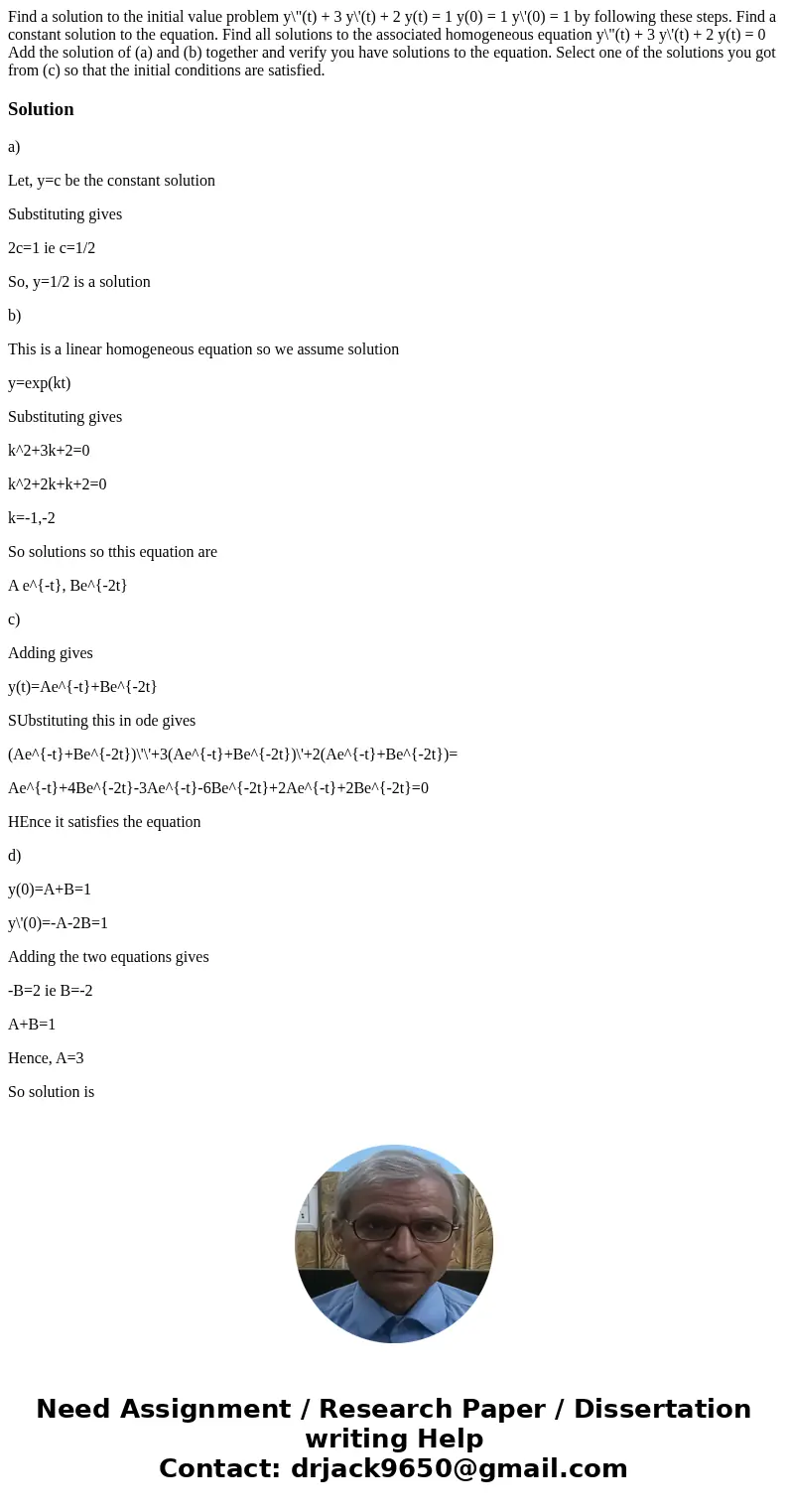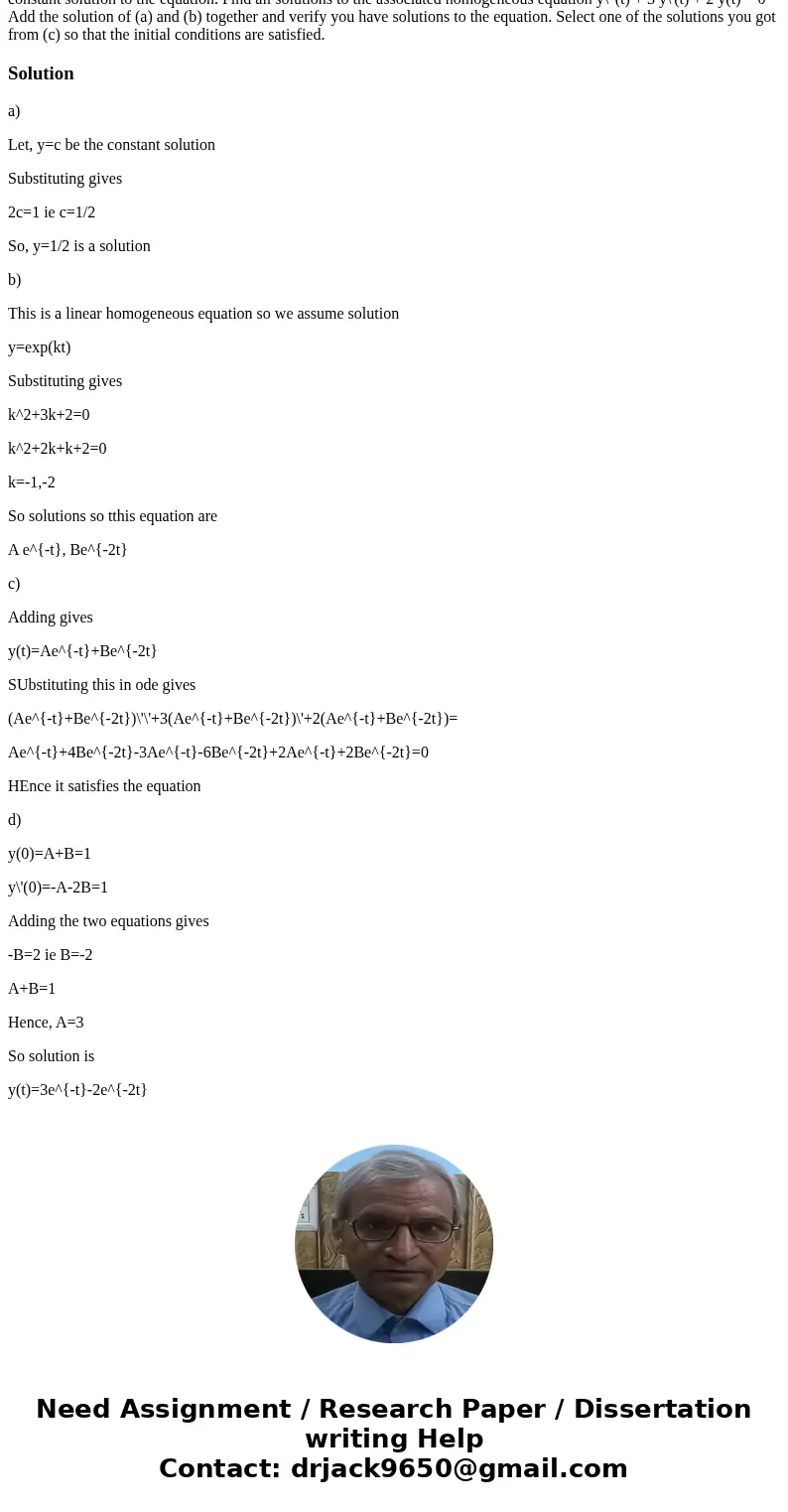Find a solution to the initial value problem yt 3 yt 2 yt
Find a solution to the initial value problem y\"(t) + 3 y\'(t) + 2 y(t) = 1 y(0) = 1 y\'(0) = 1 by following these steps. Find a constant solution to the equation. Find all solutions to the associated homogeneous equation y\"(t) + 3 y\'(t) + 2 y(t) = 0 Add the solution of (a) and (b) together and verify you have solutions to the equation. Select one of the solutions you got from (c) so that the initial conditions are satisfied.

Solution
a)
Let, y=c be the constant solution
Substituting gives
2c=1 ie c=1/2
So, y=1/2 is a solution
b)
This is a linear homogeneous equation so we assume solution
y=exp(kt)
Substituting gives
k^2+3k+2=0
k^2+2k+k+2=0
k=-1,-2
So solutions so tthis equation are
A e^{-t}, Be^{-2t}
c)
Adding gives
y(t)=Ae^{-t}+Be^{-2t}
SUbstituting this in ode gives
(Ae^{-t}+Be^{-2t})\'\'+3(Ae^{-t}+Be^{-2t})\'+2(Ae^{-t}+Be^{-2t})=
Ae^{-t}+4Be^{-2t}-3Ae^{-t}-6Be^{-2t}+2Ae^{-t}+2Be^{-2t}=0
HEnce it satisfies the equation
d)
y(0)=A+B=1
y\'(0)=-A-2B=1
Adding the two equations gives
-B=2 ie B=-2
A+B=1
Hence, A=3
So solution is
y(t)=3e^{-t}-2e^{-2t}


 Homework Sourse
Homework Sourse